Grocery prices have ballooned and will continue to rise with U.S. tariffs.

Grocery prices have already surged, and with new tariffs on the horizon, some staples will become even more expensive. Many of these items are already overpriced, and the added costs from import taxes will only make matters worse.
If you want to protect your wallet, it’s time to reconsider your grocery list and find smarter alternatives to these overpriced foods.
1. Imported cheeses are about to cost you a fortune.
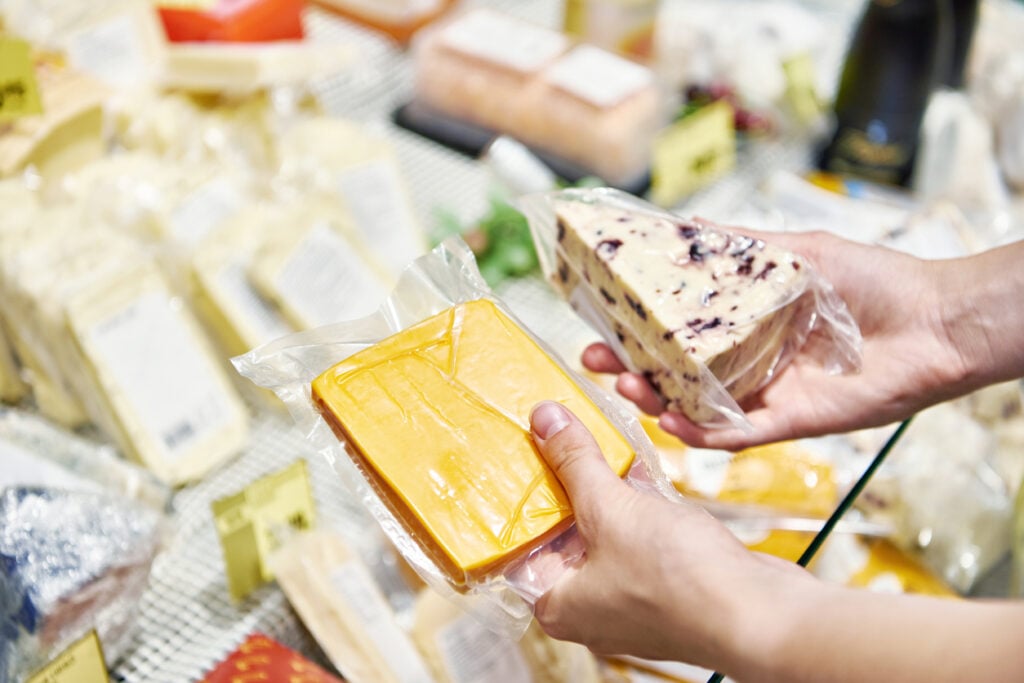
Cheese lovers, brace yourselves—imported cheeses from Europe and beyond are facing higher tariffs, which will drive prices up significantly. Varieties like Parmesan, Brie, and Gouda are already costly, and with added import fees, they’ll become luxury items, according to Cheese Reporter. Domestic alternatives can offer similar flavors at a fraction of the cost.
Instead of splurging on pricey imports, look for high-quality American-made cheeses. Many artisanal producers create excellent versions of aged cheddar, blue cheese, and even Brie. Opting for locally made cheese not only saves you money but also supports domestic farmers and reduces the environmental impact of long-distance shipping.
2. Coffee prices are brewing up for a major hike.
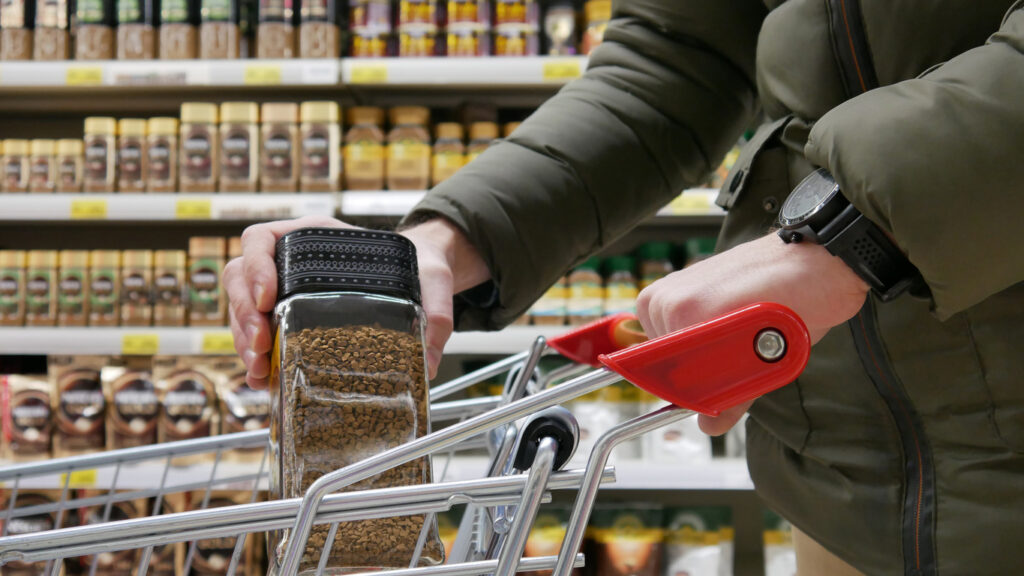
Your daily cup of coffee could soon come with sticker shock, as tariffs on imported beans from countries like Brazil and Colombia will make your favorite blends more expensive. Even before tariffs, climate issues and supply chain disruptions have already driven up coffee prices, and new taxes will only add to the burden, according to Daily Coffee News.
To cut costs, consider switching to domestic roasters that source beans wisely or experiment with alternative caffeine sources like tea or chicory-based coffee substitutes. Buying in bulk or signing up for a subscription from a direct-trade coffee supplier can also help mitigate price hikes while ensuring you still enjoy quality brews.
3. Olive oil will drain your budget even faster.
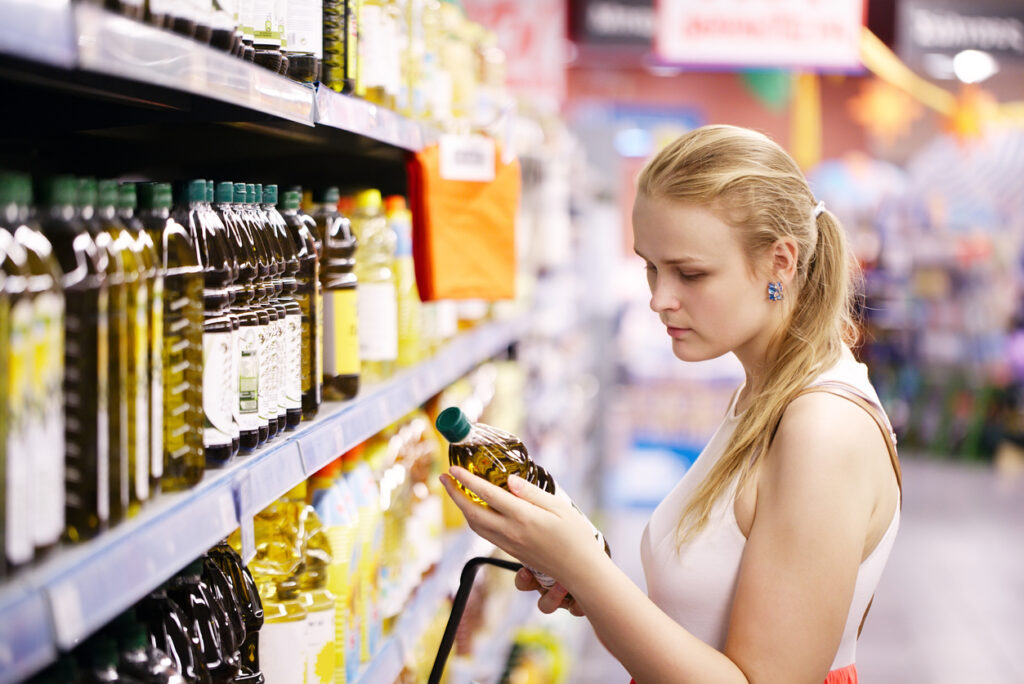
Olive oil has already seen steady price increases due to droughts in Spain and Italy, two of the world’s largest producers. With additional tariffs, you can expect even higher costs, making this kitchen staple an expensive luxury. If you use olive oil frequently for cooking or dressing, now’s the time to rethink your options, according to El Pais.
Consider switching to locally produced oils like avocado, sunflower, or grapeseed oil, which offer similar health benefits and culinary versatility. If you’re set on olive oil, buying in bulk from domestic suppliers or choosing store-brand versions can help soften the financial blow of rising prices.
4. Seafood imports will leave your wallet gasping.
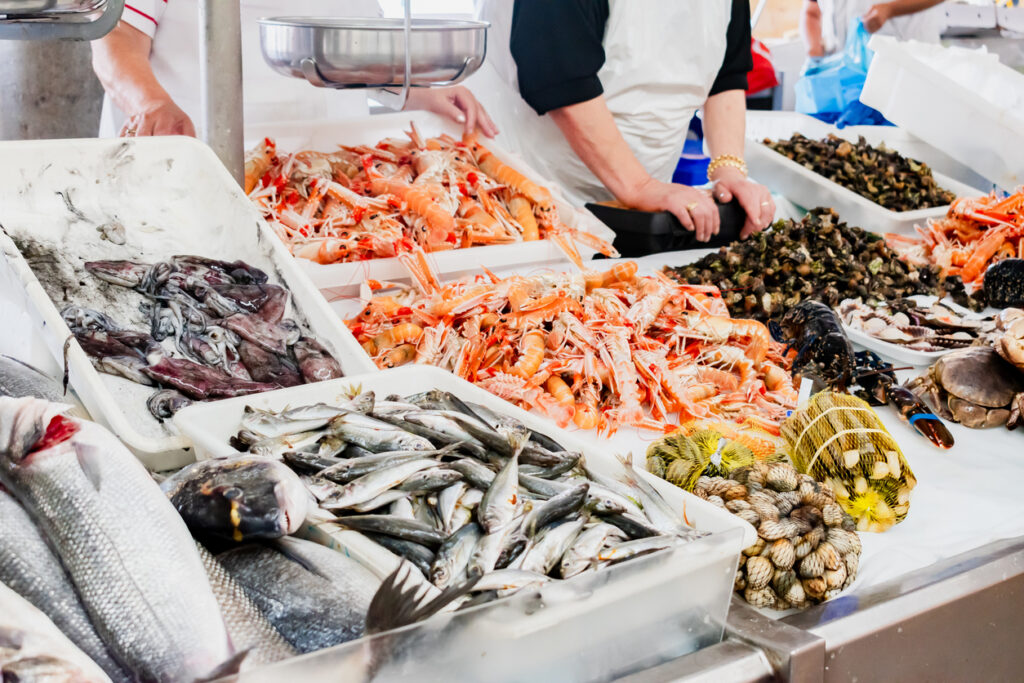
Imported seafood, including shrimp, salmon, and tuna, is already expensive, and tariffs will push these prices even higher. Many of these items are sourced from Asia and South America, where additional taxes will inflate costs for consumers. If you frequently buy imported seafood, expect to see a noticeable jump in price.
Instead of relying on imports, seek out domestic seafood options such as wild-caught Alaskan salmon or Gulf shrimp. Not only will you save money, but you’ll also enjoy fresher, higher-quality seafood with a lower environmental footprint. Shopping at local fish markets or choosing frozen options can further help keep costs down.
5. Chocolate lovers are in for a bitter surprise.
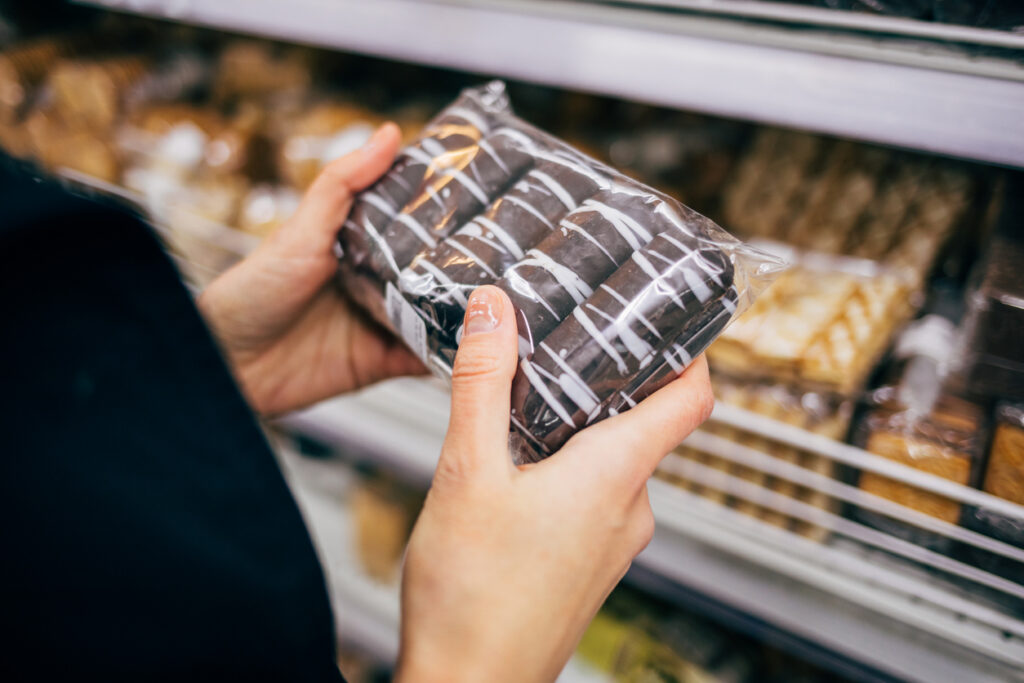
Chocolate, especially premium and imported brands, is set to become even pricier due to tariffs on cocoa and other key ingredients. Countries like Switzerland and Belgium produce some of the world’s best chocolate, but import taxes will make indulging in your favorite treats far more expensive.
To keep your chocolate cravings in check without breaking the bank, look for American brands that source cocoa responsibly or try alternatives like carob-based snacks. Buying in bulk, opting for store brands, or choosing dark chocolate with a higher cocoa content can also help stretch your dollar further while still satisfying your sweet tooth.
6. Wine from Europe will leave you seeing red.

If you love a good bottle of French, Italian, or Spanish wine, prepare for price hikes. Tariffs on European wine imports will make your favorite reds and whites far more expensive, driving up the cost of both budget-friendly and high-end bottles. The added taxes will hit wine enthusiasts particularly hard.
Instead of splurging on expensive imports, explore high-quality domestic wines from California, Oregon, and Washington. Many U.S. wineries produce exceptional alternatives at a more reasonable price. You can also save money by buying wine in bulk, opting for boxed wines, or taking advantage of local winery promotions and discounts.
7. Fresh fruits from abroad will be a budget buster.
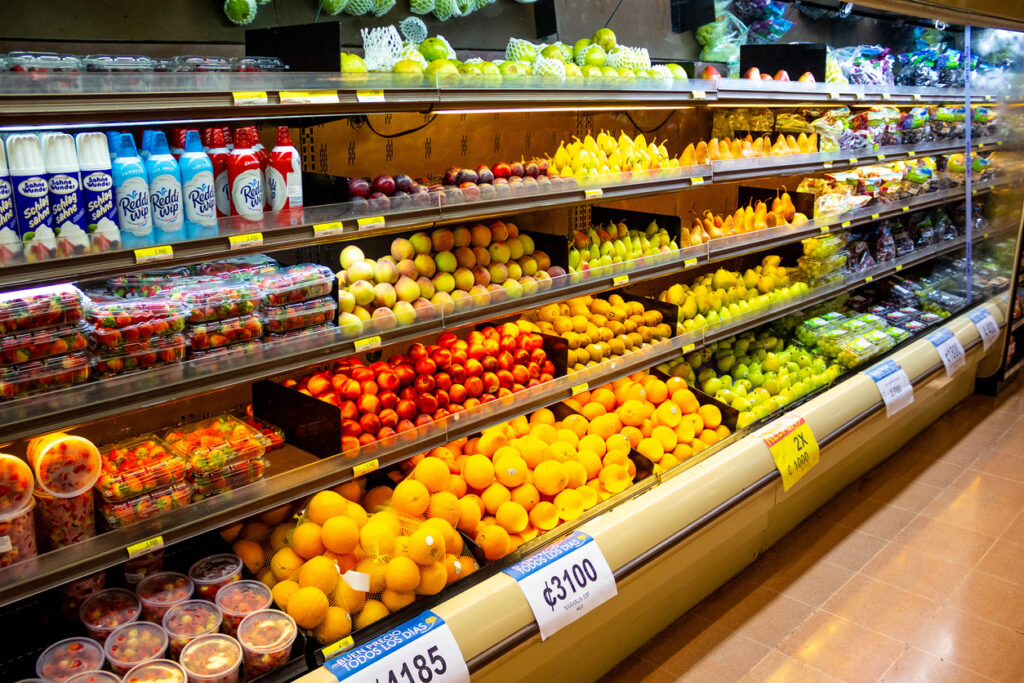
Many fresh fruits, such as bananas, avocados, and berries, are imported from countries with favorable growing conditions. However, new tariffs will increase their cost, making these everyday staples far more expensive. This will hit shoppers who prioritize fresh, healthy eating particularly hard.
To manage costs, focus on buying seasonal, locally grown produce. Farmers’ markets and community-supported agriculture (CSA) programs often offer better deals than grocery stores. Frozen and canned options can also be cost-effective alternatives while still providing essential nutrients and flavors.
8. Nuts and nut butters will crack your budget.
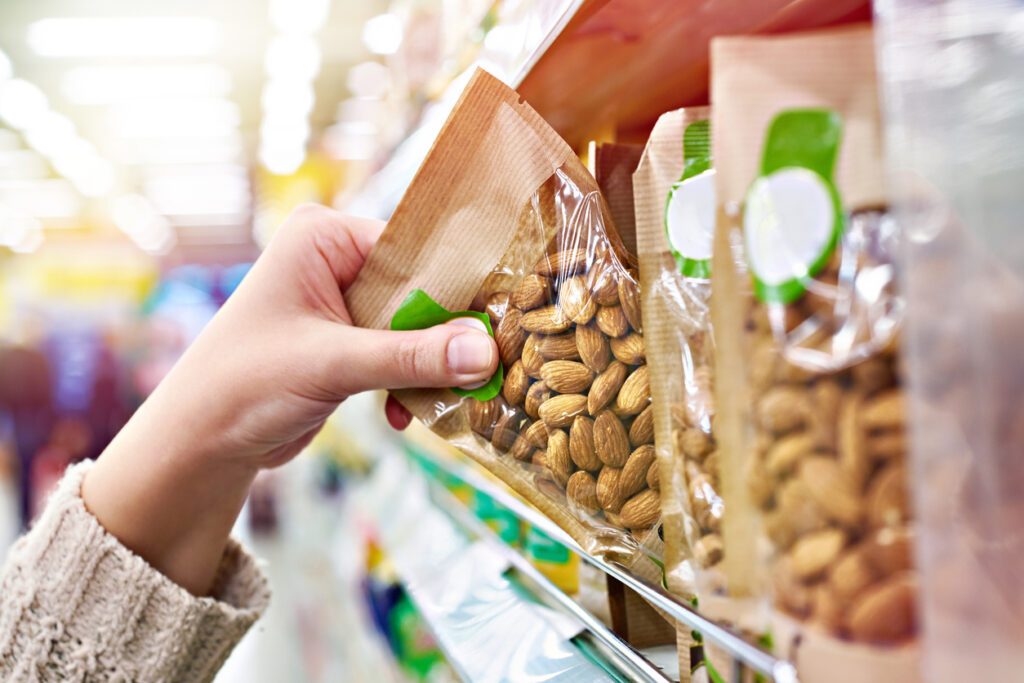
Imported nuts like almonds, cashews, and pistachios will see higher prices due to tariffs, making your favorite snacks and nut butters more expensive. Whether you enjoy these as a healthy snack or a protein boost, the added costs could take a toll on your grocery bill.
Consider switching to domestically grown nuts, such as peanuts and walnuts, which are often more affordable. Buying in bulk from wholesalers or making your own nut butter at home can also help cut costs while ensuring you still enjoy the nutritional benefits of these protein-packed snacks.
9. Avocados from Mexico will guacamole your grocery bill.
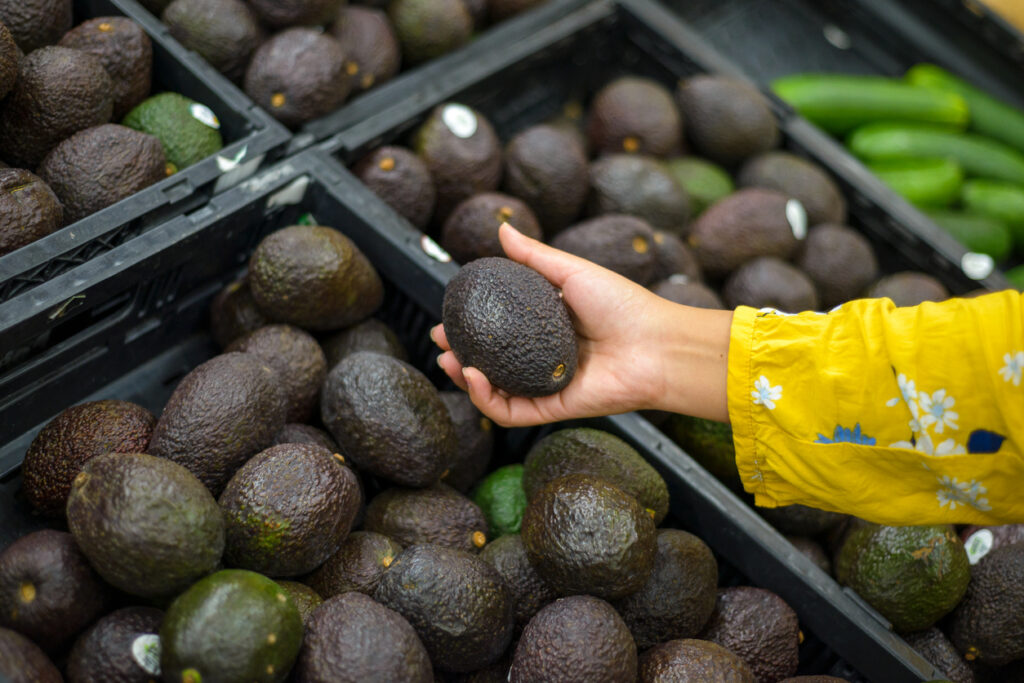
Avocados have become a staple in many households, but most of the supply in the U.S. comes from Mexico. With new tariffs, these creamy fruits will become significantly more expensive, making your homemade guacamole or avocado toast a costly indulgence.
To save money, consider purchasing avocados in bulk when prices drop and freezing extras for later use. Alternatively, explore other nutrient-rich alternatives like hummus, sunflower seeds, or locally grown produce like zucchini and squash that can add texture and creaminess to meals without the high price tag.
10. Spices and seasonings will make your bill burn.
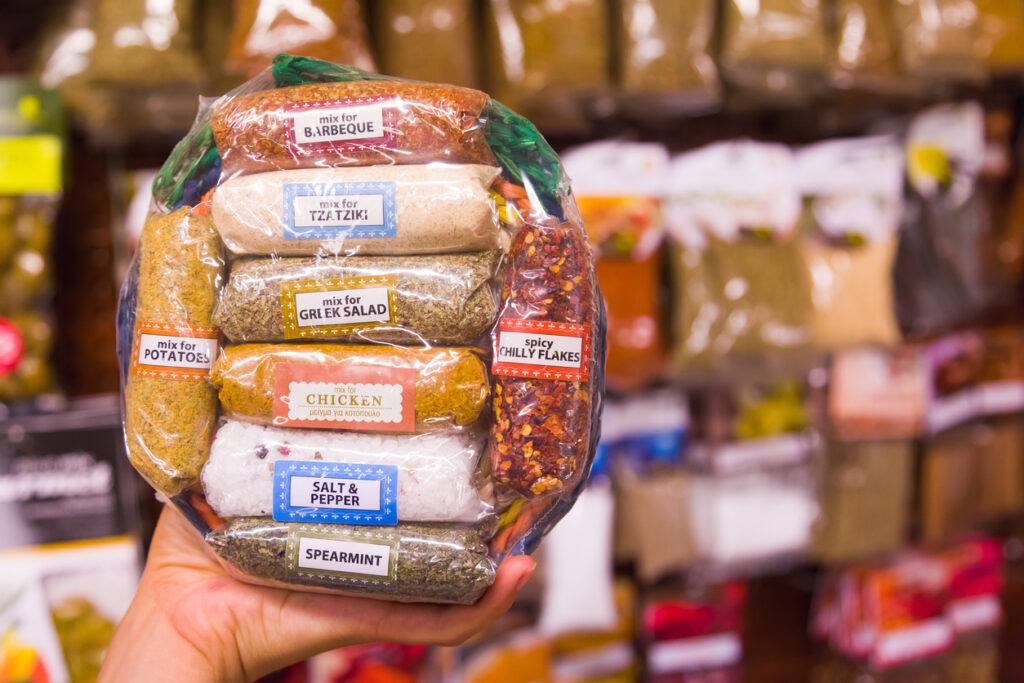
Spices like black pepper, cinnamon, and saffron are largely imported, and tariffs will drive up their already high prices. If you rely on these seasonings for your cooking, you’ll notice a sharp increase in costs as new taxes take effect.
To save money, consider growing your own herbs or buying spices in bulk from wholesalers or ethnic markets, which often offer better prices. Blending your own seasoning mixes instead of purchasing pre-packaged ones can also reduce costs while allowing you to customize flavors to your taste.
11. Garlic and ginger from China will cost you extra.
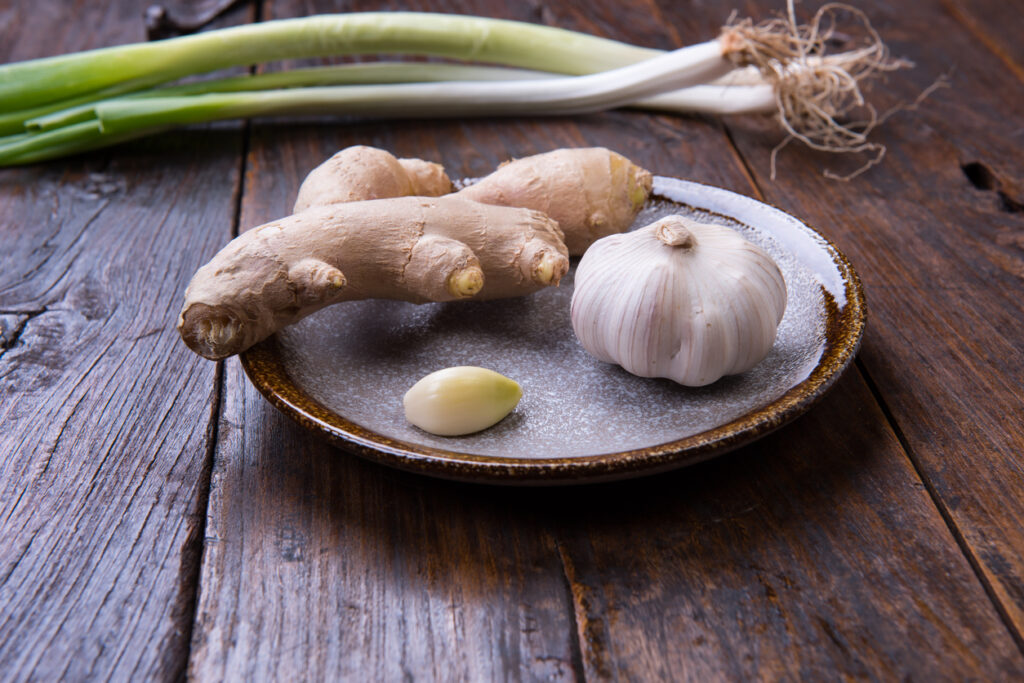
Garlic and ginger are widely used in cooking, but most of the supply in U.S. grocery stores comes from China. New tariffs on Chinese agricultural imports will make these kitchen essentials more expensive, impacting everything from stir-fries to homemade remedies.
To avoid inflated prices, look for domestically grown garlic and ginger at farmers’ markets or specialty stores. You can also try growing garlic at home, which is surprisingly easy and cost-effective. Buying dried or powdered versions in bulk can also be a practical alternative to fresh, helping you save money while keeping your meals flavorful.
